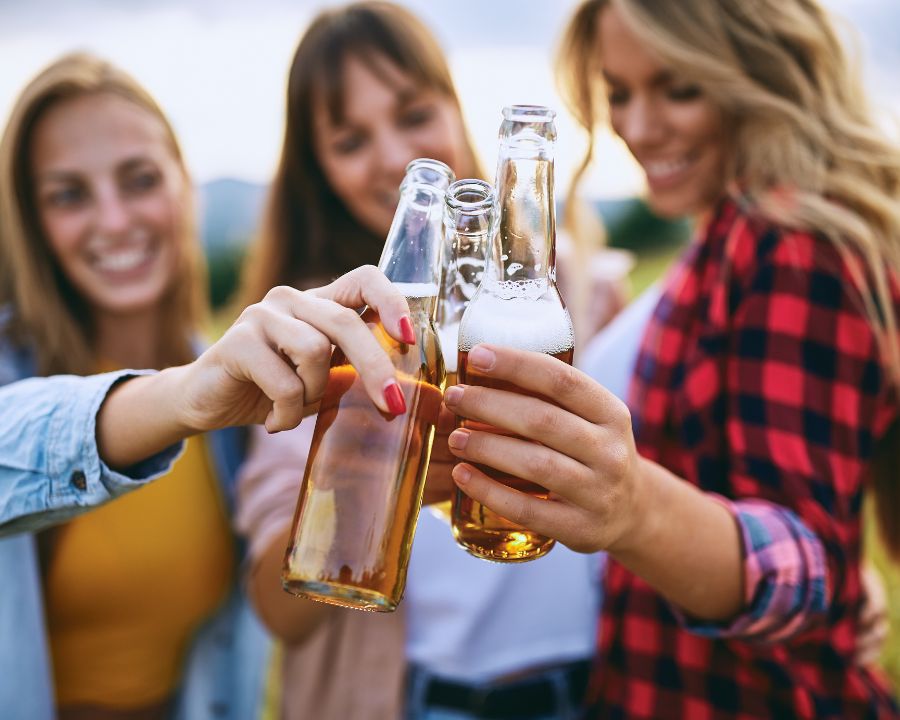Young people and alcohol: What you need to know for improved safety
Discover the facts, risks, and strategies for responsible drinking for young people to make informed decisions about alcohol consumption.
When it comes to young people and alcohol, many choose not to consume alcohol until they are of legal age, however, some do and are faced with many risks and challenges. Understanding these risks is critical for promoting responsible behaviour and ensuring the safety and well-being of young people.
One of the first steps to making these changes is understanding the risks surrounding young people and alcohol consumption. An Australian survey revealed that 33% of 14- to 17-year-olds had consumed a full alcoholic beverage during their lifetimes (ScienceDirect). This statistic highlights the importance of educating youth about the risks and their potential consequences.
With the statistics pointing out alcohol consumption among young people as a real problem that needs to be addressed, providing awareness and understanding can help them make the right decisions about alcohol usage.
Young people and alcohol: Navigating responsible consumption
Even though young people in Australia can consume alcohol legally at the age of 18, they are still unaware of the risks of irresponsible drinking and the consequences that may follow. Let’s take a closer look at how young people can make more responsible choices for their safety and the safety of those around them.

Know your limits
Having a clear understanding of your limits and the standard sizes of alcoholic beverages is important to gauge how much you can consume without being intoxicated. One standard drink in Australia has about 10g of pure alcohol so it’s important to consider your body weight, metabolism, and other factors that can affect how alcohol impacts you. Keep track of your intake and stop drinking before you’ve reached your limit. Always remember that it’s ok to say no to another drink.

Plan for safe transport
Never drink and drive or get in a car driven by an intoxicated driver. If you know that drinking will be involved, plan your transport. Look for options like getting a designated sober driver, using public transport, booking a taxi or ride-share, or even arranging to stay overnight. If you’re going out with a group of people, keep an eye on each other and ensure everyone gets home safe. Planning can help prevent any risky situations and reduce potential legal consequences.

Don’t give in to peer pressure
Peer pressure is a significant concern for young people when it comes to alcohol consumption. Develop strategies that can help resist unwanted pressure like having a prepared response or excuse in case a friend tries to influence you to take a drink. If you encounter any situations that make you uncomfortable or don’t respect your wishes to remain sober then remember that you have the option of leaving. Build confidence in your ability to say no and make the right choices.

Seek help if you’re concerned about your health
If you’re worried about your alcohol consumption or that of a friend, then don’t hesitate to ask for help. There are many support services available from helplines, counselling, and even support groups. Talk to a trusted adult like a parent, teacher, school counsellor, or doctor who can get you the help you need. Remember that getting the help you need is a sign of strength, not weakness. Getting the interventions at the right time can help you avoid serious problems.
What Our Community Says About Us
Our Partners





Support young Australians stay safe with Youthsafe
Youthsafe focuses on preventing unintentional injury by providing various services and programs specifically designed for young people in different scenarios from work and socialising to driving and sports.
Our evidence-based approach allows us to offer valuable resources for anyone trying to secure social safety for youth. We provide support and information about how to ensure safety for young people in the different social scenarios they encounter throughout their young lives.
FAQs
If you're concerned about a friend's drinking, approach them without judgement. Choose a time when they're sober to express your concerns. Offer support and encourage them to seek help if needed. Be prepared with information about support services. Remember, while you can offer support, ultimately they decide to change their behaviour.
If you're worried about your drinking habits, it's important to seek help. Start by talking to a trusted adult, such as a parent, teacher, or doctor. There are also several helplines and online resources available for confidential advice. Remember, recognising that you might have a problem is an important first step towards getting help.


